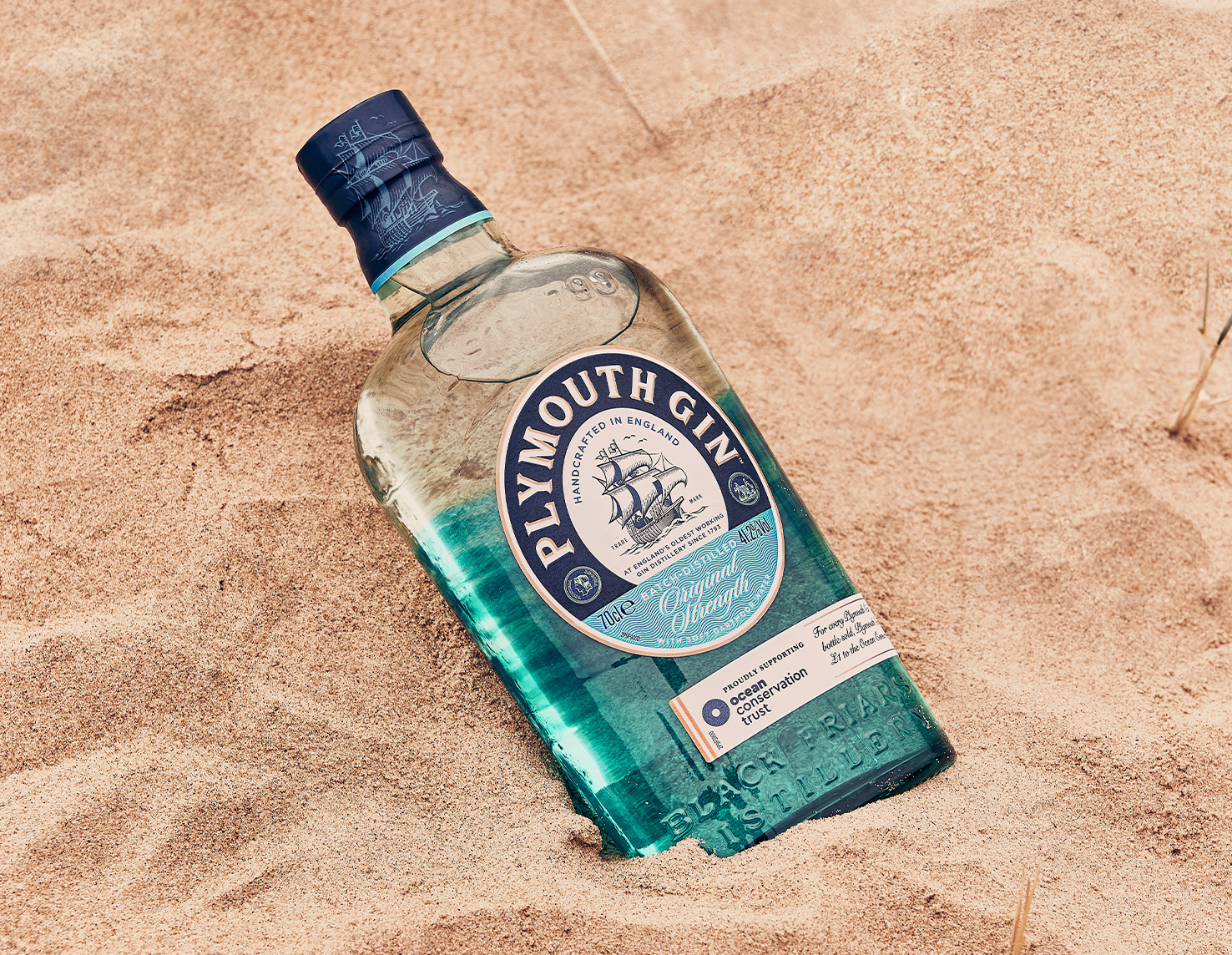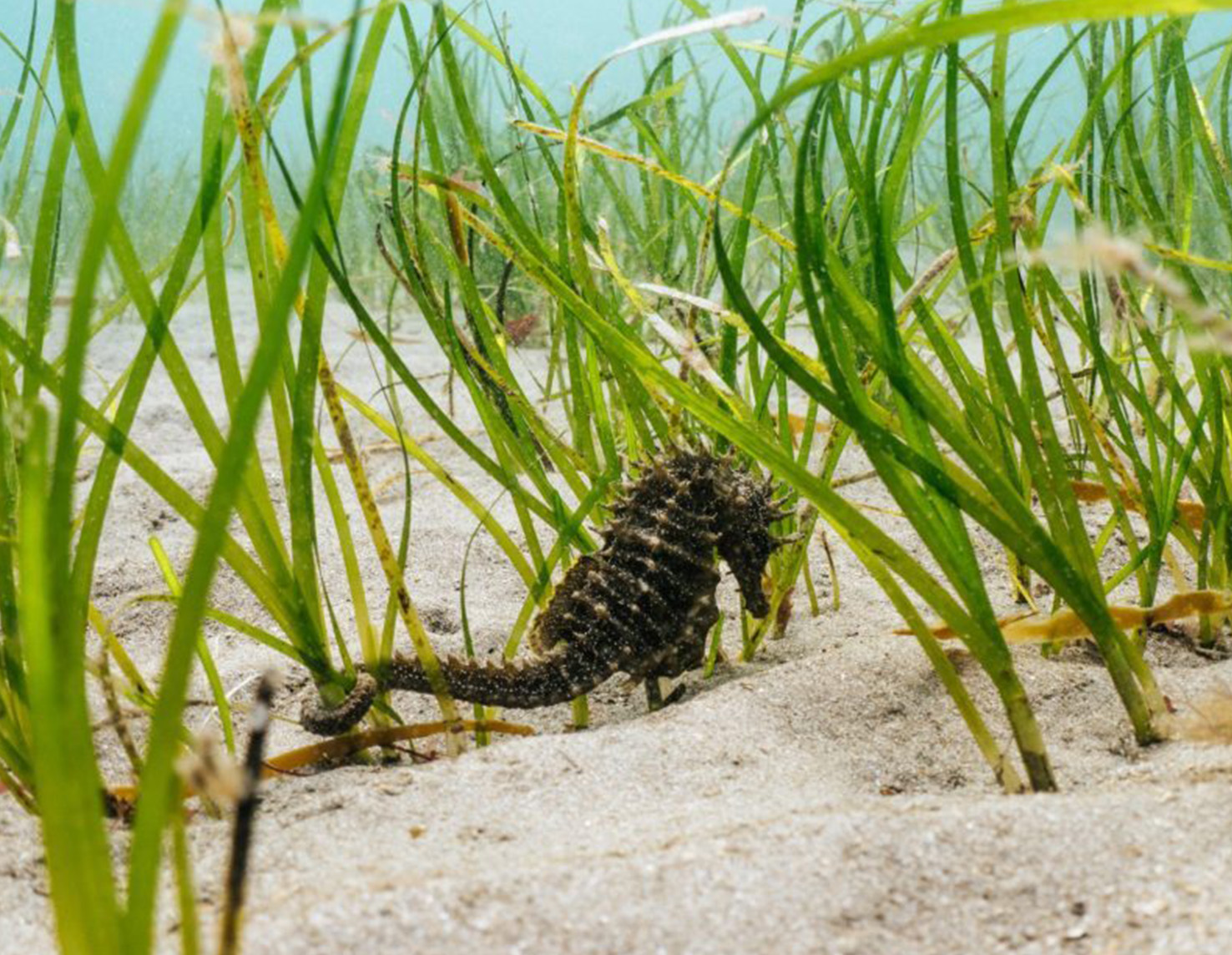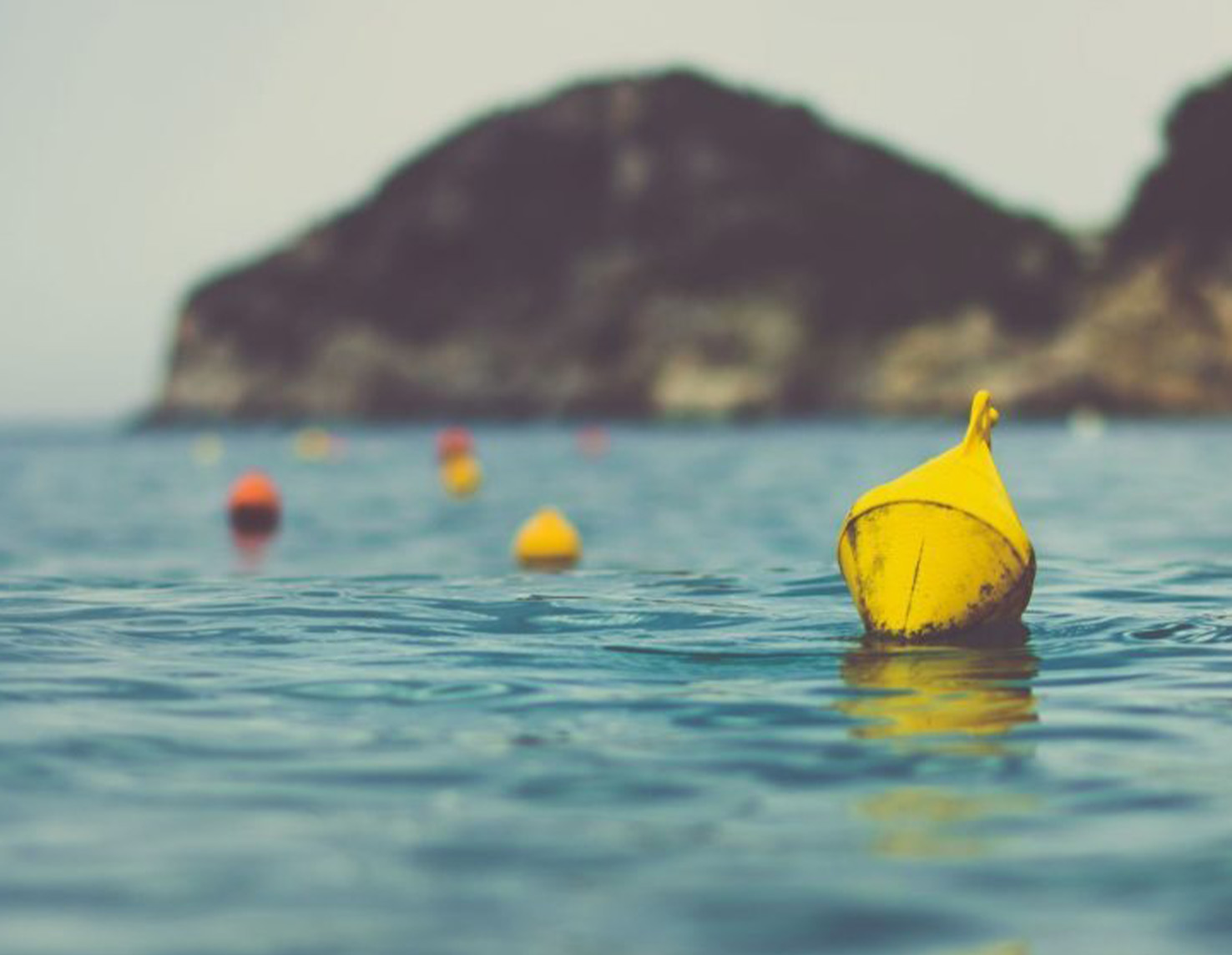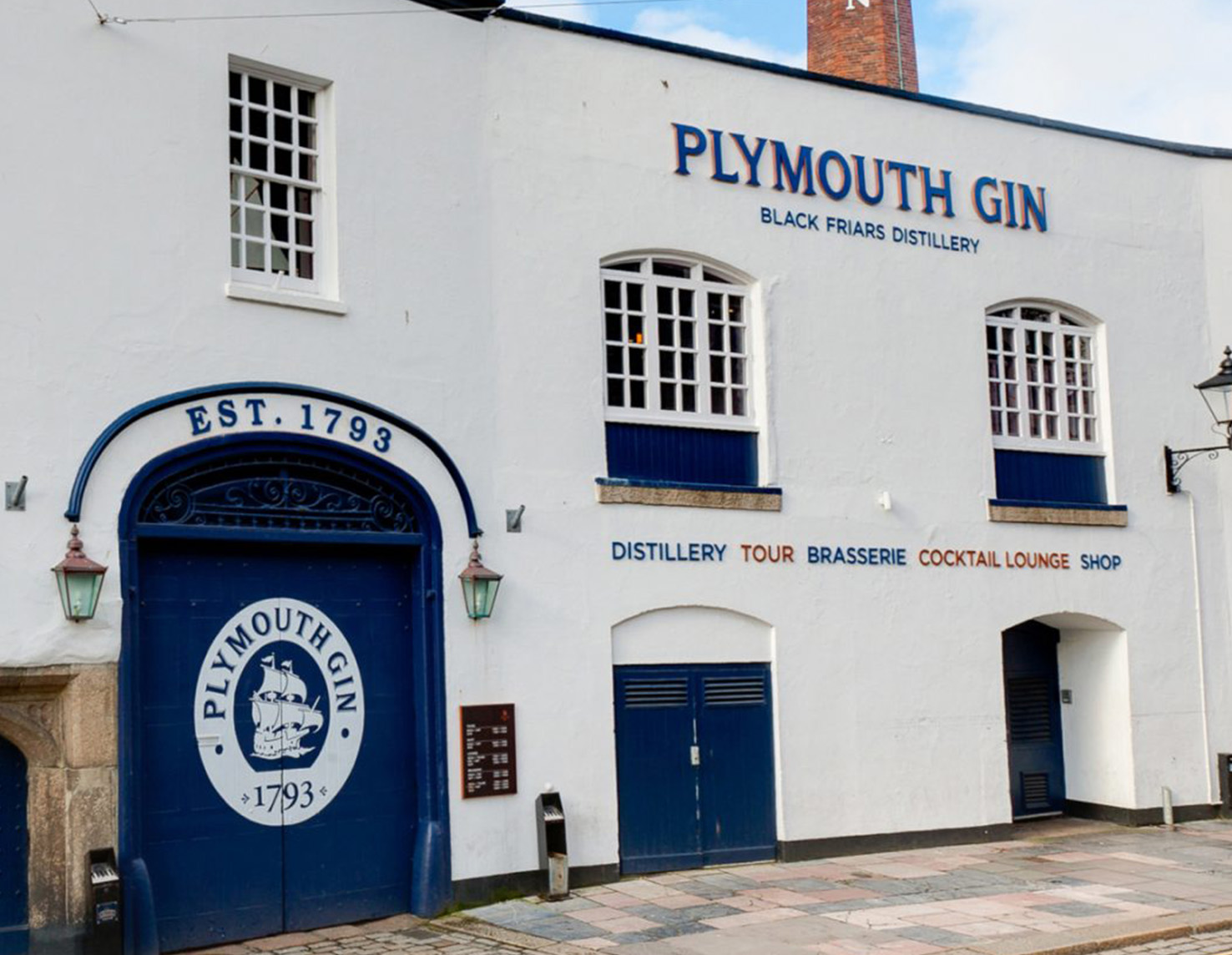STAY ON BOARD WITH THE PLYMOUTH GIN COMMUNITY
SIGN UP NOW TO RECEIVE EXCLUSIVE OFFERS, DELICIOUS COCKTAIL RECIPES AND EXCITING NEWS ON WHAT’S ON THE HOSIZON FOR PLYMOUTH GIN

PLYMOUTH GIN
&
OCEAN CONSERVATION TRUST
WHAT HAVE WE DONE SO FAR AND WHAT DOES THE FUTURE HOLD?
MORE THAN JUST A DROP IN THE OCEAN
Just a stone’s throw away from Plymouth Gin Distillery is our coastal neighbour, the Ocean Conservation Trust. They work to protect and conserve marine life and habitats through research, education, and engagement. We’ve been proud partners of them since 2021, but we’re looking to make an even bigger splash with them in the coming years…
THE STORY SO FAR…
With the help of donations from Plymouth Gin, we’ve been able to help fund the protection and regeneration of 20 hectares of seagrass meadows – a critical component of healthy marine ecosystems that provides a wide range of ecological, economic, and social benefits.


WHY ARE SEAGRASS MEADOWS SO IMPORTANT?
Seagrasses are one of the most biodiverse habitats on the planet and are a natural background for fish stocks to thrive; a single hectare of seagrass alone can support thousands of fish. Unfortunately, almost half of the UK’s seagrass beds have disappeared since the 1930s, making it the fastest disappearing habitat on the planet.
Biodiversity: Seagrass meadows provide habitat for a diverse array of marine life, including fish, crabs, shrimp, and many other species.
Carbon storage: They can store carbon at a rate up to 35 times higher than tropical rainforests, making them an important part of the global carbon cycle.
Water quality: They help to improve water quality by filtering pollutants and excess nutrients from the water, preventing harmful algal blooms and improving the overall health of marine ecosystems.
Coastal protection: They play a part in stabilising sediment and preventing erosion along coastlines, protecting coastal communities from storm damage and flooding.
HOW ARE WE HELPING TO PROTECT THEM?
By laying marker buoys around the perimeter of seagrass meadows (19 so far) we’re able to indicate to passing boat-owners – who can unwillingly damage the habitat – that there’s seagrass ahoy.
Propeller scarring: When boats are driven through seagrass beds, the propeller can leave scars on the seafloor.
Anchoring: Boats that anchor in seagrass beds can damage seagrass by uprooting plants or breaking off seagrass blades.
Disruption of sediment: Boat wakes and propellers can stir up sediment and cloud the water, reduce the amount of light available for seagrass to photosynthesise.

OUR AMBITION
RIDING THE CREST OF THE WAVE
In the next five years, our aim is to build on the great work achieved so far and restore around 700 hectares – equating to 10% of all UK seagrass meadows – to the quantity and quality of how they were 60 years ago. With your help, we can get there even sooner, with donations from Plymouth Gin’s Ocean Edition bottle helping to keep seagrass meadows thrive for the next 230 years and beyond.

SUSTAINABILITY AT OUR CORE
As part of our sustainable initiatives, The Black Friars distillery – the UK’s oldest working Gin distillery – is 100% powered by hydroelectricity. All botanicals that make up the recipe are recycled. The Visitor Centre has entirely removed 100% of single-use plastic products. And all cocktail garnishes (even the eggshells) are transformed into green energy.
And when it comes to the bottle…
100% recyclable glass
Labels made from recyclable paper
STAY ON BOARD WITH THE PLYMOUTH GIN COMMUNITY
SIGN UP NOW TO RECEIVE EXCLUSIVE OFFERS, DELICIOUS COCKTAIL RECIPES AND EXCITING NEWS ON WHAT’S ON THE HOSIZON FOR PLYMOUTH GIN